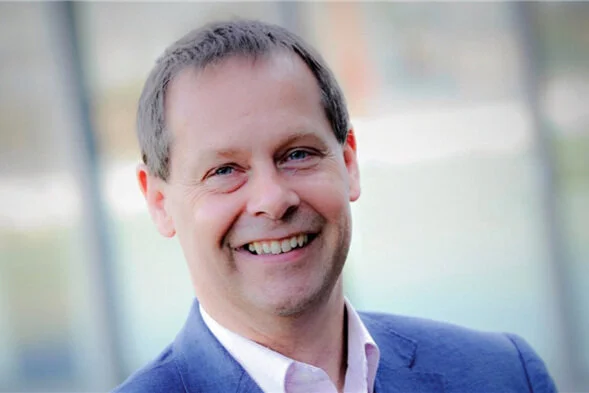The Assisted Dying Bill
Medium Read (7-8 minutes)
A sensitive topic under discussion.
In late October 2021 the House of Lords will debate the case for assisted suicide again as Baroness Meacher has introduced a Private Members Bill which will have its second reading on the 22nd October.
Background
Under the Suicide Act 1961 it is an offence for one person to encourage or assist the suicide (or attempted suicide) of another. Suicide or attempted suicide are not in themselves criminal offences.
There have been several legal cases regarding the offence of assisted suicide, particularly in the context of disabled or terminally ill people who are unable to end their lives without assistance from family or friends. Of particular relevance is the case of Debbie Purdy, who in July 2009 obtained a House of Lords ruling ordering the Director of Public Prosecutions (DPP) to formulate an offence-specific policy setting out the public interest factors the Crown Prosecution Service will consider when deciding whether to prosecute assisted suicide offences. The DPP’s policy was published in February 2010 following a public consultation.
In June 2014 the Supreme Court revisited the issue of assisted suicide in the cases of Tony Nicklinson, Paul Lamb and AM, who were seeking a declaration that the current law on assisted suicide was incompatible with their right to a private life under Article 8 of the European Convention on Human Rights. The Supreme Court decided against making such a declaration by a majority of seven to two.
It took the view that Parliament was the most appropriate forum for considering changes to the law on this particular issue. Following the Supreme Court decision, in July 2015, the European Court of Human rights dismissed applications from Jane Nicklinson and Paul Lamb.
Rob Marris MP, tabled the Assisted Dying Bill (No 2) 2015 which had its second reading on 11 September 2015. The Bill aims to enable competent adults who are terminally ill to be allowed assistance with ending their life if they request it. Previous attempts to change the law in this area include the Assisted Dying Bill 2014, tabled by Lord Falconer in the House of Lords that reached Committee Stage in the last Parliament.
This is a highly personal and emotional subject, but this makes it even more important that parliament sets itself the highest standards of debate and evidenced based policy making. Any change to law is unlikely to see a reversal – indeed in most cases abroad it has led to further weakening of the ‘safeguards proponents of assisted suicide talk about.
For those who have been around this debate for some time it appears it generally boils down to a few key points
Those for
“We have no control over how we arrive in the world but at the end of life we should have control over how we leave it.”
Patrick Stuart, Patron of Dignity in Dying
We need it
This is 'the compassion argument'. Supporters of assisted suicide believe that allowing people to ‘die with dignity’ is kinder than forcing them to continue their lives with suffering.
We want it
This is known as 'the autonomy argument'. Some believe that every patient has a right to choose when to die.
We can control it
This is 'the public policy argument'. Proponents believe that assisted suicide can be safely regulated by government legislation.
Those opposed
“The experience of death is going to get more and more painful, contrary to what many people believe. The forthcoming euthanasia will make it more rather than less painful because it will put the emphasis on personal decision in a way which was blissfully alien to the whole problem of dying in former times. It will make death even more subjectively intolerable, for people will feel responsible for their own deaths and morally obligated to rid their relatives of their unwanted presence. Euthanasia will further intensify all the problems its advocates think it will solve.”
René Girard Philosopher
Alternative treatments are available
Alternative treatments are available, such as palliative care and hospices. We do not have to kill the patient to kill the symptoms. Nearly all pain can be relieved.
There is no ‘right’ to be killed and the slippery slope of assisted suicide is real
Opening the doors to voluntary euthanasia and assisted suicide could lead to non-voluntary and involuntary euthanasia, by giving doctors the power to decide when a patient’s life is not worth living. In the Netherlands in 1990 around 1,000 patients were killed without their request.
We could never truly control it.
Reports from the Netherlands, where euthanasia and physician-assisted suicide are legal, reveal that doctors do not always report it.
The assumption that patients should have a right to die would impose on doctors a duty to kill
The assumption that patients should have a right to die would impose on doctors a duty to kill, thus restricting the autonomy of the doctor. Also, a ‘right to die’ for some people might well become a ‘duty to die’ by others, particularly those who are vulnerable or dependent upon others.
Conclusion
As we can see the debate is finely balanced. Even the most vociferous supporters recognise the need for balance in this debate. Once the public understand a little more about assisted suicide beyond the slogans, support and opposition to the Bill is evenly split.
For Christians on the Left the Bill gives an opportunity to explore what this means for us. We can debate this difficult issue with dignity and humility and draw upon our faith as we engage with others on the issue. We also need to pray for and support Parliamentarians faced with this difficult choice in the weeks ahead.
Lord,
Grant compassion, peace and serenity to the debate coming to the Lords this month. Pour out your spirit on your people, that they would be filled with wisdom and strength to guide the passage of this bill through parliament in a way that glorifies you and brings peace and wholeness to our country and to individuals.
Amen
Andrew John Reed
is a British Labour Co-operative politician who was the Member of Parliament for the key marginal Constituency of Loughborough from 1997 to 2010. Reed was awarded the OBE in June 2012 for service to the community and sport in Leicestershire.
On Monday 11th October 2021, Andy Reed will chair an important debate on this sensitive issue. We will hear a range of views, including those in favour of the bill and those against it. We will hear about the passage of the bill so far and where it is headed next, to give us context to pray into the discussion at Westminster and in broader society.
Please join us if you can.


